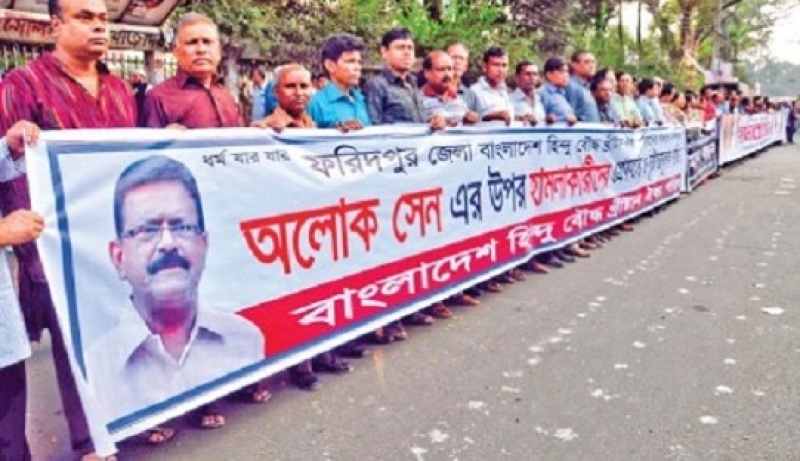
Members of Bangladesh minorities were reported to participate in the annual protest against making Islam the official religion of the state.
The International Christian Concern (ICC) said that religious minorities in Bangladesh such as Hindus, Buddhists, and Christians, have gathered last June 9 for the "Black Day" annual protest for the declaration of Islam as the state religion.
As per ICC, the Bangladesh Constitution was amended on June 9, 1988 through the adoption of the eight amendment that declares Islam as Bangladesh's official religion. Religious minorities have gathered since then to protest its declaration.
ICC cited an interview by Asia News with Christian leader Nirmol Rozario who explained that a country with more than one religion can not declare Islam as the official religion. Rozario pointed out the inconsistencies in the declaration since the Bangladesh Constitution states the country is "secular."
"With the amendment, the seed of sectarian politics has been planted. In a country where Hindus, Buddhists, and Christians also live, a single religion cannot proclaim itself as the state religion. We do not agree," Rozario raised.
"In its Constitution, Bangladesh declares itself a secular country. But at the same time, it says that the state religion is Islam," she elaborated. "This is a clear contradiction. And if this state of affairs continues, Islamic fundamentalism and religious hatred will end up creating serious problems."
ICC said that religious minorities are persecuted and discriminated in Bangladesh and have pushed the said minorities to come together asking the government for the establishment of a minority commission. ICC cited Bangladesh Hindu Buddhist Christian Unity Council (BHBCUC)Secretary General Rana Dasgupta stating in an interview with Asia News that they are "strongly" demanding that a "minority ministry and a commission for religious communities" since they are "often persecuted by the majority group."
The BHBCUC have also demanded from the state government last February that representation be made for the religious minorities through the reading of the scriptures from each religion during parliament ceremonies and sessions.
"We believe that in the interests of equality, justice and democracy, the hope of all religious communities in Bangladesh is to put an end to religious discrimination in the National Assembly of Bangladesh," Dasgupta said in an interview with Fides.
"BHBCUC leaders say introducing readings from the holy books of the four major religions would be a significant symbolic gesture to behold pluralism in Bangladesh on the eve of the country's golden jubilee of independence from Pakistan this year," he added.
Meanwhile, the Union of Catholic Asian News pointed out that harmony in Bangladesh is actually hindered by the oppression of these religious minorities. The oppression has trickled down to individual issues on land settlement, employment, and law enforcement experienced by members of the religious minorities against the Muslims who make up a majority of the population.
UCA News highlighted a report by Bangladesh Hindu Grand Alliance last February that 2020 registered a double number of cases reported for violence against minorities as compared to 2019. The report revealed that 62 people from minority religious groups were killed along with 512 injured from attacks and 1460 evicted from their homes from January-June 2020.
Supreme Court Lawyer Govind Chandra Pramanik told UCA News in an interview that religious minorities have long-demanded for proper representation in the government but to no avail and has then hampered harmony in the country.
"Harmony is vital for the prosperity of any nation, but it is under threat as minorities are abused. For a long time, we have demanded reserve seats for minorities and a separate ministry for minority affairs," Pramanik said.
"I think that without such efforts minorities won't have proper representation and abuses of minorities won't stop," he stressed.
True enough, attacks on religious minorities have continued over the years despite calls for their protection since 2013. Recently, a mob has desecrated a Hindu temple in the Sunamganj District yet "police and local authorities were silent" on it. This prompted members of the religious minorities in Bangladesh to protest against the attack on the country's golden celebration of independence last March.






















